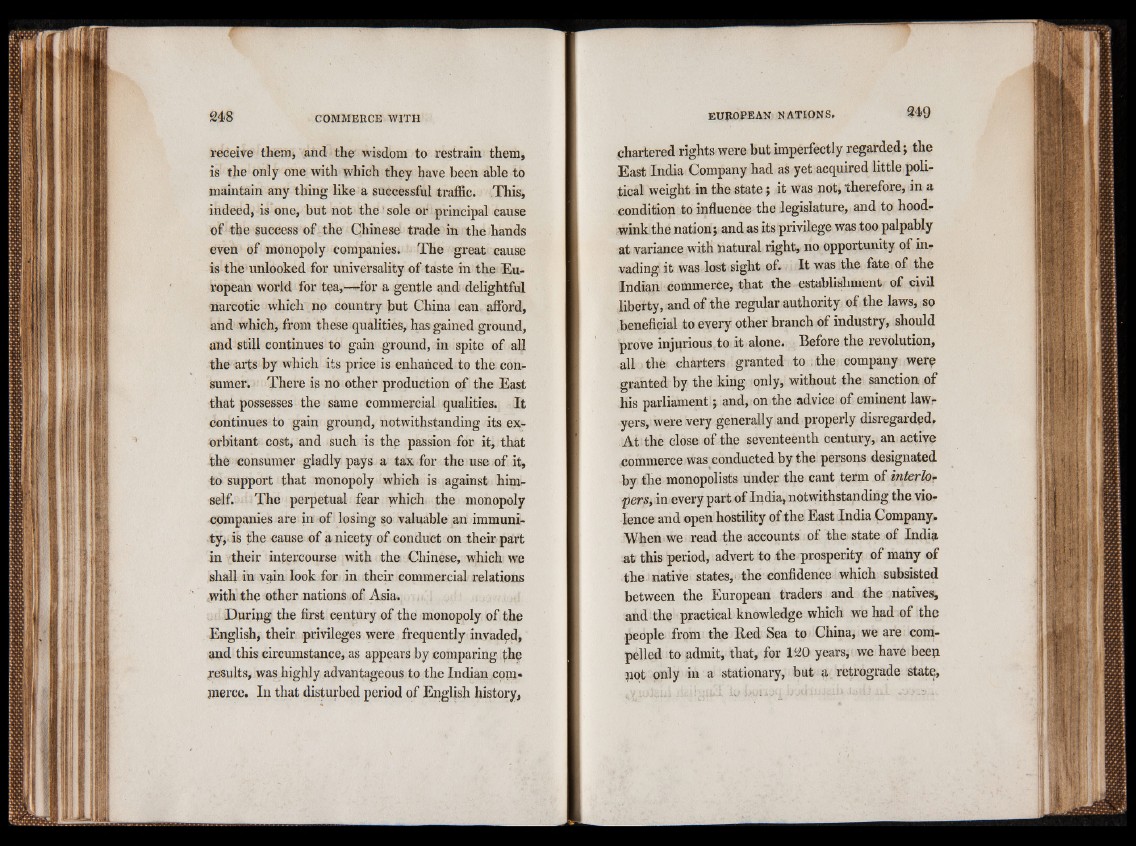
receive them, and the wisdom to restrain them,
is the only one with which they have been able to
maintain any thing like a successful traffic. This,
indeed, is one, but not the sole or principal cause
of the success of the Chinese trade in the hands
even of monopoly companies. The great cause
is the unlooked for universality of taste in the European
world for tea,—for a gentle and delightful
narcotic which no country but China can afford,
and which, from these qualities, has gained ground,
and still continues to gain ground, in spite of all
the arts by which its price is enhanced to the consumer.
There is no other production of the East
that possesses the same commercial qualities. It
continues to gain ground, notwithstanding its exorbitant
cost, and such is the passion for it, that
the consumer gladly pays a tax for the use of it,
to support that monopoly which is against himself.
The perpetual fear which the monopoly
companies are in of losing so valuable an immunity,
is the cause of a nicety of conduct on their part
in their intercourse with the Chinese, which we
shall in vain look for in their commercial relations
with the other nations of Asia.
During the first century of the monopoly of the
English, their privileges were frequently invaded,
and this circumstance, as appears by comparing the
results, was highly advantageous to the Indian commerce.
In that disturbed period of English history,
chartered rights were but imperfectly regarded; the
East India Company had as yet acquired little political
weight in the state; it was not, therefore, in a
condition to influence the legislature, and to hoodwink
the nation ; and as its privilege was too palpably
at variance with natural right, no opportunity of invading
it was lost sight of. It was the fate of the
Indian commerce, that the establishment of civil
liberty, and of the regular authority of the laws, so
beneficial to every other branch of industry, should
prove injurious to it alone. Before the revolution,
all the charters granted to . the company were
granted by the king only, without the sanction of
his parliament; and, on the advice of eminent lawr
yers, were very generally and properly disregarded.
At the close of the seventeenth century, an active
commerce was conducted by the persons designated
by the monopolists under the cant term of interior
pers, in every part of India, notwithstanding the violence
and open hostility of the East India Company.
When we read the accounts of the state of India
at this period, advert to the prosperity of many of
the native states, the confidence which subsisted
between the European traders and the natives,
and the practical knowledge which we had of the
people from the Red Sea to China, we are compelled
to admit, that, for 120 years, we have been
pot only in a stationary, but a retrograde state,